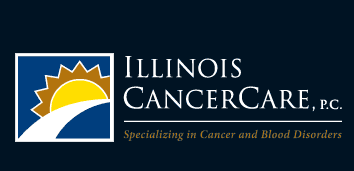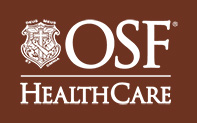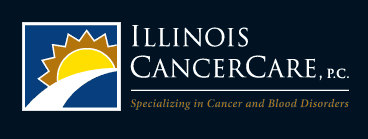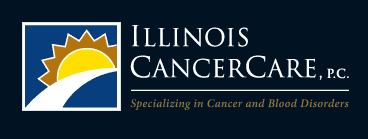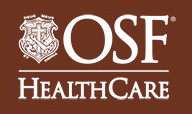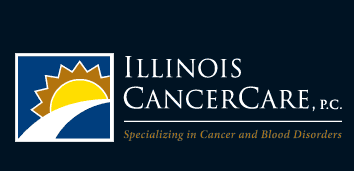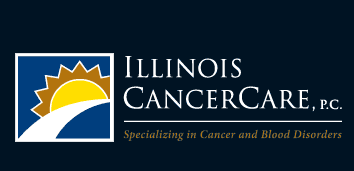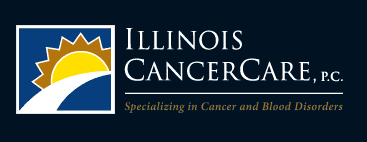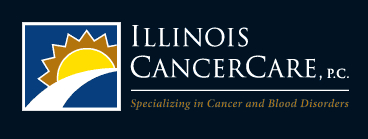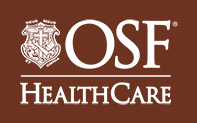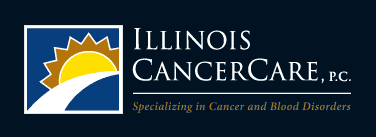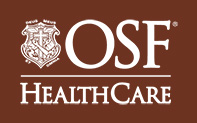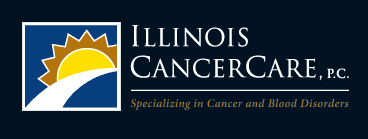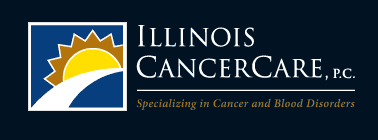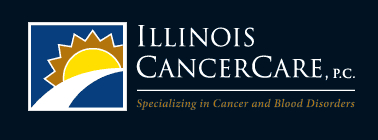Bortezomib After Combination Chemotherapy, Rituximab, and an Autologous Stem Cell Transplant in Treating Patients With Mantle Cell Lymphoma
| Status: | Active, not recruiting |
|---|---|
| Conditions: | Lymphoma |
| Therapuetic Areas: | Oncology |
| Healthy: | No |
| Age Range: | 18 - 69 |
| Updated: | 8/2/2018 |
| Start Date: | June 2006 |
A Randomized Phase II Trial of Maintenance vs Consolidation Bortezomib Therapy Following Aggressive Chemo-Immunotherapy and Autologous Stem Cell Transplant for Previously Untreated Mantle Cell Lymphoma
This randomized phase II trial studies how well bortezomib works when given after combination
chemotherapy, rituximab, and an autologous stem cell transplant in treating patients with
mantle cell lymphoma. Bortezomib may stop the growth of cancer cells by blocking some of the
enzymes needed for cell growth. Drugs used in chemotherapy work in different ways to stop the
growth of cancer cells, either by killing the cells or by stopping them from dividing. Giving
more than one drug (combination chemotherapy) together with an autologous stem cell
transplant may allow more chemotherapy to be given so that more cancer cells are killed.
Monoclonal antibodies, such as rituximab, can block cancer growth in different ways. Some
block the ability of cancer cells to grow and spread. Others find cancer cells and help kill
them or carry cancer-killing substances to them. Giving bortezomib after combination
chemotherapy, monoclonal antibody therapy, and an autologous stem cell transplant may kill
any remaining cancer cells or keep the cancer from coming back.
chemotherapy, rituximab, and an autologous stem cell transplant in treating patients with
mantle cell lymphoma. Bortezomib may stop the growth of cancer cells by blocking some of the
enzymes needed for cell growth. Drugs used in chemotherapy work in different ways to stop the
growth of cancer cells, either by killing the cells or by stopping them from dividing. Giving
more than one drug (combination chemotherapy) together with an autologous stem cell
transplant may allow more chemotherapy to be given so that more cancer cells are killed.
Monoclonal antibodies, such as rituximab, can block cancer growth in different ways. Some
block the ability of cancer cells to grow and spread. Others find cancer cells and help kill
them or carry cancer-killing substances to them. Giving bortezomib after combination
chemotherapy, monoclonal antibody therapy, and an autologous stem cell transplant may kill
any remaining cancer cells or keep the cancer from coming back.
Objectives
Primary Objective:
To determine the 18-month progression-free survival (PFS) in patients with previously
untreated mantle cell lymphoma who are treated with aggressive chemo-immunotherapy and
autologous stem cell transplant followed by randomization to either maintenance or
consolidation bortezomib therapy
Secondary Objectives:
- To determine the toxicity profiles of maintenance and consolidation bortezomib by
evaluating the number of patients able to complete all maintenance or consolidation
therapy
- To determine the complete response rate to intensive chemo-immunotherapy plus
maintenance or consolidation bortezomib
- To determine time to progression and overall survival using these two treatment regimens
Correlative/Other Pre-Specified Objectives:
- To determine the importance of p53 mutation or deletion on patient outcome with respect
to CR rate, PFS, and OS
- To determine the importance of Ki67, cyclin D1, phosphohistone 3, p27, p21, p16, and
PARP p85 expression in pre-treatment tumor biopsies with respect to CR rate, PFS, and OS
- To determine the relationship between proliferation signature and clinical outcome using
quantitative real-time RT-PCR
- To evaluate the importance of quantitative cyclin D1 expression and expression of cyclin
D1 isoforms in predicting clinical outcome using quantitative real-time RT-PCR
- To evaluate the prognostic significance of microRNAs in mantle cell lymphoma using
microRNA arras
- To explore the correlation of selected microRNA polymorphisms with gene target
expression with clinical outcomes such as response, PFS, and OS
- To determine changes in gene expression profile from diagnosis to relapse samples to
identify genes differentially silenced or over-expressed with disease recurrence
- To determine the importance of early PCR negativity (following Treatment 2) using
bcl-1/IgH junction and/or IgH chain gene rearrangement with respect to maintained PFS
and the success of maintenance or consolidation therapy to converting patients to PCR
negative status
OUTLINE OF INTERVENTIONS:
CHEMOIMMUNOTHERAPY: Patients receive chemoimmunotherapy comprising rituximab* intravenously
(IV) over 4-6 hours on day 1, methotrexate (MTX) IV over 4 hours on day 2, cyclophosphamide
IV over 2 hours, doxorubicin hydrochloride IV, and vincristine sulfate IV on day 3, and
prednisone orally (PO) on days 3-7. Beginning 24 hours after completion of MTX, patients
receive leucovorin calcium IV every 6 hours until blood levels of MTX are in a safe range.
Patients also receive filgrastim (G-CSF) subcutaneously (SC) once daily (QD) beginning on day
3 and continuing until blood counts recover. Beginning no sooner than day 22, but no later
that day 29 of the first course, patients receive a second course of chemoimmunotherapy as
above. Patients with > 15% persistent bone marrow involvement may receive a third course of
chemoimmunotherapy. Patients are restaged and those with progressive disease are removed from
therapy.
NOTE: *During the first course of chemoimmunotherapy, patients receive rituximab only if the
number of circulating mantle cells is =< 10,000/mm^3, otherwise, rituximab is omitted during
the first course of chemoimmunotherapy.
HIGH-DOSE CONSOLIDATION CHEMOIMMUNOTHERAPY AND PERIPHERAL BLOOD STEM CELL (PBSC) COLLECTION:
Approximately 4 weeks after completion of chemoimmunotherapy, patients receive high-dose
consolidation chemoimmunotherapy comprising cytarabine IV over 2 hours and etoposide
phosphate IV continuously on days 1-4, and rituximab IV over 4-6 hours on days 5 and 12 OR 6
and 13. Beginning on day 14 and continuing until completion of PBSC collection, patients
receive G-CSF SC QD. Once blood counts recover, patients undergo 1-3 leukapheresis procedures
for collection of PBSCs on days 22-25.
HIGH-DOSE CHEMOTHERAPY AND AUTOLOGOUS PBSC TRANSPLANTATION (PBSCT): Beginning 4-6 weeks after
completion of leukapheresis, patients receive carmustine IV over 2 hours on day -6, etoposide
phosphate IV over 4 hours on day -4, and cyclophosphamide IV over 2 hours on day -2. Patients
undergo autologous PBSCT on day 0. Patients also receive G-CSF SC QD beginning on day 4 and
continuing until blood counts recover.
POST-TRANSPLANTATION IMMUNOTHERAPY: Approximately 5 weeks after autologous PBSCT, patients
receive rituximab IV over 4-6 hours once weekly for 2 weeks. Approximately 4 weeks after
completion of post-transplantation immunotherapy, patients proceed to maintenance therapy or
consolidation therapy with bortezomib as described in the Arms section.
After completion of study treatment, patients are followed every 2 months for 2 years, every
6 months for 3 years, and then annually for 5 years.
Primary Objective:
To determine the 18-month progression-free survival (PFS) in patients with previously
untreated mantle cell lymphoma who are treated with aggressive chemo-immunotherapy and
autologous stem cell transplant followed by randomization to either maintenance or
consolidation bortezomib therapy
Secondary Objectives:
- To determine the toxicity profiles of maintenance and consolidation bortezomib by
evaluating the number of patients able to complete all maintenance or consolidation
therapy
- To determine the complete response rate to intensive chemo-immunotherapy plus
maintenance or consolidation bortezomib
- To determine time to progression and overall survival using these two treatment regimens
Correlative/Other Pre-Specified Objectives:
- To determine the importance of p53 mutation or deletion on patient outcome with respect
to CR rate, PFS, and OS
- To determine the importance of Ki67, cyclin D1, phosphohistone 3, p27, p21, p16, and
PARP p85 expression in pre-treatment tumor biopsies with respect to CR rate, PFS, and OS
- To determine the relationship between proliferation signature and clinical outcome using
quantitative real-time RT-PCR
- To evaluate the importance of quantitative cyclin D1 expression and expression of cyclin
D1 isoforms in predicting clinical outcome using quantitative real-time RT-PCR
- To evaluate the prognostic significance of microRNAs in mantle cell lymphoma using
microRNA arras
- To explore the correlation of selected microRNA polymorphisms with gene target
expression with clinical outcomes such as response, PFS, and OS
- To determine changes in gene expression profile from diagnosis to relapse samples to
identify genes differentially silenced or over-expressed with disease recurrence
- To determine the importance of early PCR negativity (following Treatment 2) using
bcl-1/IgH junction and/or IgH chain gene rearrangement with respect to maintained PFS
and the success of maintenance or consolidation therapy to converting patients to PCR
negative status
OUTLINE OF INTERVENTIONS:
CHEMOIMMUNOTHERAPY: Patients receive chemoimmunotherapy comprising rituximab* intravenously
(IV) over 4-6 hours on day 1, methotrexate (MTX) IV over 4 hours on day 2, cyclophosphamide
IV over 2 hours, doxorubicin hydrochloride IV, and vincristine sulfate IV on day 3, and
prednisone orally (PO) on days 3-7. Beginning 24 hours after completion of MTX, patients
receive leucovorin calcium IV every 6 hours until blood levels of MTX are in a safe range.
Patients also receive filgrastim (G-CSF) subcutaneously (SC) once daily (QD) beginning on day
3 and continuing until blood counts recover. Beginning no sooner than day 22, but no later
that day 29 of the first course, patients receive a second course of chemoimmunotherapy as
above. Patients with > 15% persistent bone marrow involvement may receive a third course of
chemoimmunotherapy. Patients are restaged and those with progressive disease are removed from
therapy.
NOTE: *During the first course of chemoimmunotherapy, patients receive rituximab only if the
number of circulating mantle cells is =< 10,000/mm^3, otherwise, rituximab is omitted during
the first course of chemoimmunotherapy.
HIGH-DOSE CONSOLIDATION CHEMOIMMUNOTHERAPY AND PERIPHERAL BLOOD STEM CELL (PBSC) COLLECTION:
Approximately 4 weeks after completion of chemoimmunotherapy, patients receive high-dose
consolidation chemoimmunotherapy comprising cytarabine IV over 2 hours and etoposide
phosphate IV continuously on days 1-4, and rituximab IV over 4-6 hours on days 5 and 12 OR 6
and 13. Beginning on day 14 and continuing until completion of PBSC collection, patients
receive G-CSF SC QD. Once blood counts recover, patients undergo 1-3 leukapheresis procedures
for collection of PBSCs on days 22-25.
HIGH-DOSE CHEMOTHERAPY AND AUTOLOGOUS PBSC TRANSPLANTATION (PBSCT): Beginning 4-6 weeks after
completion of leukapheresis, patients receive carmustine IV over 2 hours on day -6, etoposide
phosphate IV over 4 hours on day -4, and cyclophosphamide IV over 2 hours on day -2. Patients
undergo autologous PBSCT on day 0. Patients also receive G-CSF SC QD beginning on day 4 and
continuing until blood counts recover.
POST-TRANSPLANTATION IMMUNOTHERAPY: Approximately 5 weeks after autologous PBSCT, patients
receive rituximab IV over 4-6 hours once weekly for 2 weeks. Approximately 4 weeks after
completion of post-transplantation immunotherapy, patients proceed to maintenance therapy or
consolidation therapy with bortezomib as described in the Arms section.
After completion of study treatment, patients are followed every 2 months for 2 years, every
6 months for 3 years, and then annually for 5 years.
1. Documentation of Disease
A. Histologic Documentation:
- Histologically documented mantle cell lymphoma with co-expression of CD20 (or
CD19) and CD5 and lack of CD23 expression by immunophenotyping AND at least one
of the following confirmatory tests:
- positive immunostaining for cyclin D1; OR
- the presence of t(11;14) on cytogenetic analysis; OR
- molecular evidence of bcl-1/IgH rearrangement.
- Cases that are CD5-negative and/or CD23-positive will be eligible provided that
the histopathology is consistent with mantle cell lymphoma AND positive for
cyclin D1, t(11;14), or bcl-1/IgH rearrangement.A tissue block should be
submitted to the CALGB Pathology Coordinating Office for central pathology
review.
- A diagnosis based on peripheral blood or bone marrow is allowed. If the diagnosis
is based only on blood, in addition to the immunophenotype and molecular
confirmation above, a peripheral blood smear must be available for central
pathology review. If the diagnosis is based on a bone marrow biopsy, the tissue
block should be submitted.
- Note: Failure to submit pathology materials within 60 days of patient
registration will be considered a major protocol violation.
B. Extent of Disease:
- Stage I-IV. Patients with nodular histology mantle cell lymphoma must have Ann
Arbor stage III or IV disease to be eligible. Patients with mantle zone histology
will not be eligible because of their relatively favorable prognosis. Patients
with other mantle cell histologies are eligible regardless of stage.
- No active CNS disease defined as symptomatic meningeal lymphoma or known CNS
parenchymal lymphoma. A lumbar puncture demonstrating mantle cell lymphoma at the
time of registration to this study is not an exclusion for study enrollment.
2. Prior Treatment:
A. Patients must be previously untreated or have received no more than one prior cycle
of chemotherapy and/or rituximab treatment.
B. No prior radiation therapy for mantle cell lymphoma.
C. ≥ 2 weeks since major surgery.
D. ≥ 3 weeks since prior chemotherapy.
3. Age Eligibility: Age ≥ 18 years and < 70 years
4. Murine Products Hypersensitivity Eligibility: No known hypersensitivity to murine
products.
5. Use of Systemic Corticosteroids Eligibility: No medical condition requiring chronic
use of systemic corticosteroids.
6. Eligibility Criteria on HIV Infection: No HIV infection. Patients with a history of
intravenous drug abuse or any behavior associated with an increased risk of HIV
infection should be tested for exposure to the HIV virus. Patients who test positive
or who are known to be infected are not eligible due to an increased risk of infection
with this regimen. An HIV test is not required for entry on this protocol, but is
required if the patient is perceived to be at risk.
7. Non-pregnant and non-nursing: Non-pregnant and non-nursing. Treatment under this
protocol would expose an unborn child to significant risks. Women and men of
reproductive potential should agree to use an effective means of birth control.
8. HepBSAg or HepC Ab Eligibility: Patients who test positive for HepBSAg or HepC Ab are
eligible provided all of the following criteria are met:
A. bilirubin ≤ 2 x upper limit of normal; AND
B. AST ≤ 3 x upper limit of normal; AND
C. liver biopsy demonstrates ≤ grade 2 fibrosis and no cirrhosis.
Hepatitis B surface Ag(+) patients will be treated with lamivudine (3TC) throughout
protocol therapy and for 6-12 months thereafter.
9. Secondary Malignancy Eligibility: Patients with a "currently active" second
malignancy, other than non-melanoma skin cancers are not eligible. This includes
Waldenstrom's Macroglobulinemia, since such patents have experienced transient
increases in IgM following initiation of rituximab, with the potential for
hyperviscosity syndrome requiring plasmapheresis. Patients are not considered to have
a "currently active" malignancy if they have completed anti-cancer therapy, and are
considered by their physician to be at less than 30% risk of relapse.
10. Initial Required Laboratory Values:
- LVEF by MUGA or ECHO ≥ 45%
- Creatinine ≤ 2.0 mg/dL
- Total Bilirubin ≤ 2.0 mg/dL (Unless attributable to Gilbert's Disease)
- u-HCG or serum HCG Negative (If patient of childbearing potential).
We found this trial at
48
sites
Graham Hospital At Graham Hospital, we have a proud and rich history of serving the...
Click here to add this to my saved trials
Roswell Park Cancer Institute Welcome to Roswell Park Cancer Institute (RPCI), America's first cancer center...
Click here to add this to my saved trials
One Medical Center Drive
Lebanon, New Hampshire 03756
Lebanon, New Hampshire 03756
(603) 653-9000

Norris Cotton Cancer Center at Dartmouth-Hitchcock Medical Center Norris Cotton Cancer Center at DHMC in...
Click here to add this to my saved trials
Click here to add this to my saved trials
Click here to add this to my saved trials
1600 Divisadero Street
San Francisco, California 94115
San Francisco, California 94115
888.689.8273

UCSF Helen Diller Family Comprehensive Cancer Center UCSF’s long tradition of excellence in cancer research...
Click here to add this to my saved trials
SUNY Upstate Medical University Hospital SUNY Upstate Medical University in Syracuse, NY, is the only...
Click here to add this to my saved trials
1 Medical Center Blvd
Winston-Salem, North Carolina 27103
Winston-Salem, North Carolina 27103
(336) 716-2011

Wake Forest University Comprehensive Cancer Center Our newly expanded Comprehensive Cancer Center is the region’s...
Click here to add this to my saved trials
Illinois CancerCare-Bloomington Illinois CancerCare, P.C. is a comprehensive practice treating patients withcancer andblood diseases. Our...
Click here to add this to my saved trials
St. Joseph Medical Center Located in Bloomington, Illinois, OSF St. Joseph Medical Center is a...
Click here to add this to my saved trials
Click here to add this to my saved trials
44 Binney St
Boston, Massachusetts 02115
Boston, Massachusetts 02115
(617) 632-6364
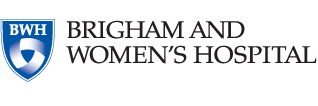
Dana-Farber/Brigham and Women's Cancer Center Boston's Brigham and Women's Hospital (BWH) is an international leader...
Click here to add this to my saved trials
Illinois CancerCare - Canton Illinois CancerCare is one of the largest private oncology and hematology...
Click here to add this to my saved trials
Illinois CancerCare - Carthage Illinois CancerCare, P.C. is a comprehensive practice treating patients withcancer andblood...
Click here to add this to my saved trials
Memorial Hospital Memorial Hospital is a vital force in establishing and maintaining the well-being of...
Click here to add this to my saved trials
101 Manning Drive
Chapel Hill, North Carolina 27514
Chapel Hill, North Carolina 27514
(919) 966-0000

Lineberger Comprehensive Cancer Center at University of North Carolina - Chapel Hill One of the...
Click here to add this to my saved trials
Click here to add this to my saved trials
Columbus, Ohio 43210
Click here to add this to my saved trials
Eureka Community Hospital Eureka Community Hospital, established in 1901, offers a wide range of emergency,...
Click here to add this to my saved trials
Illinois CancerCare - Eureka Illinois CancerCare is one of the largest private oncology and hematology...
Click here to add this to my saved trials
Galesburg Clinic, PC OSF Galesburg Clinic, located on the OSF St. Mary Medical Center campus,...
Click here to add this to my saved trials
Illinois CancerCare - Galesburg Illinois CancerCare, P.C. is a comprehensive practice treating patients withcancer andblood...
Click here to add this to my saved trials
Illinois CancerCare - Havana Illinois CancerCare, P.C. is a comprehensive practice treating patients withcancer andblood...
Click here to add this to my saved trials
Mason District Hospital Mason District Hospital is dedicated to providing superior healthcare close to home...
Click here to add this to my saved trials
Illinois CancerCare - Kewanee Clinic Illinois CancerCare, P.C. is a comprehensive practice treating patients withcancer...
Click here to add this to my saved trials
Click here to add this to my saved trials
Illinois CancerCare - Macomb Illinois CancerCare is one of the largest private oncology and hematology...
Click here to add this to my saved trials
McDonough District Hospital McDonough District Hospital is centered in Macomb, Illinois, home to Division 1...
Click here to add this to my saved trials
Illinois CancerCare - Monmouth Illinois CancerCare, P.C. is a comprehensive practice treating patients withcancer andblood...
Click here to add this to my saved trials
OSF Holy Family Medical Center OSF Holy Family Medical Center, a part of OSF HealthCare,...
Click here to add this to my saved trials
Long Island Jewish Medical Center Serving North Shore LIJ Health System employees and their families....
Click here to add this to my saved trials
Click here to add this to my saved trials
BroMenn Regional Medical Center Advocate BroMenn Medical Center is a general medical and surgical hospital...
Click here to add this to my saved trials
Illinois CancerCare - Community Cancer Center At the Community Cancer Center, we are committed to...
Click here to add this to my saved trials
Click here to add this to my saved trials
Community Hospital of Ottawa Ottawa Regional Hospital, an acute care medical facility, is located on...
Click here to add this to my saved trials
Illinois CancerCare - Pekin Illinois CancerCare is one of the largest private oncology and hematology...
Click here to add this to my saved trials
Click here to add this to my saved trials
Click here to add this to my saved trials
OSF St. Francis Medical Center OSF Saint Francis Medical Center, licensed for 616 beds and...
Click here to add this to my saved trials
Proctor Hospital Proctor Hospital provides unmatched healthcare experiences…every day. In fact, it’s our mission. Licensed...
Click here to add this to my saved trials
Methodist Medical Center of Illinois UnityPoint Health is one of the nation's most integrated health...
Click here to add this to my saved trials
Illinois Valley Community Hospital People
Click here to add this to my saved trials
Illinois CancerCare - Peru Illinois CancerCare, P.C. is a comprehensive practice treating patients withcancer andblood...
Click here to add this to my saved trials
Illinois CancerCare - Princeton Illinois CancerCare, P.C. is a comprehensive practice treating patients withcancer andblood...
Click here to add this to my saved trials
Perry Memorial Hospital Services at Perry include the Perry Memorial Orthopedic and Sports Medicine Clinic;...
Click here to add this to my saved trials
Click here to add this to my saved trials
Illinois CancerCare - Spring Valley Illinois CancerCare, P.C. is a comprehensive practice treating patients withcancer...
Click here to add this to my saved trials



